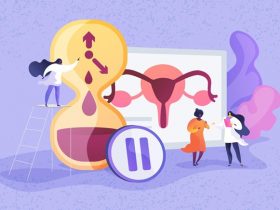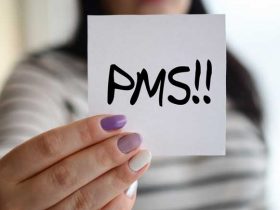Perimenopause vs. Menopause vs. Postmenopause

Perimenopause is described as the period in which your menstrual periods become irregular. It may either be late, or you may completely skip one or more periods. Menstrual flow may also become heavier or lighter.
Menopause is defined as a lack of menstruation for one full year.
Postmenopause refers to the years after menopause has fully occurred.
Symptoms of Menopause
Menopause is a unique experience for every woman. Menopause that comes on quickly or gradually frequently has more severe symptoms.
The severity and duration of symptoms frequently worsen under circumstances that affect the health of the ovary, such as cancer or hysterectomy, or under specific lifestyle conditions, such as smoking.
The symptoms of perimenopause, menopause, and postmenopause are typically the same, with the exception of variations in menstruation. The following are the main early perimenopause symptoms:
- less frequent menstruation
- heavier or lighter periods than you normally experience
- vasomotor symptoms (VMS), including hot flashes, night sweats, and flushing
An estimate of about 75% of women experience hot flashes with menopause.
Other common symptoms include:
- insomnia[1]
- anxiety [2]
- depression [3]
- vaginal dryness
- weight gain
- sore or tender breasts
- headaches
- racing heart
- urinary tract infections (UTIs) [4]
- reduced muscle mass
- painful or stiff joints
- difficulty concentrating
- memory problems
- reduced libido, or sex drive
- dry skin, mouth, and eyes
- increased urination
- reduced bone mass
- less full breasts
- hair thinning or loss
- increased hair growth on other areas of the body, such as the face, neck, chest, and upper back













